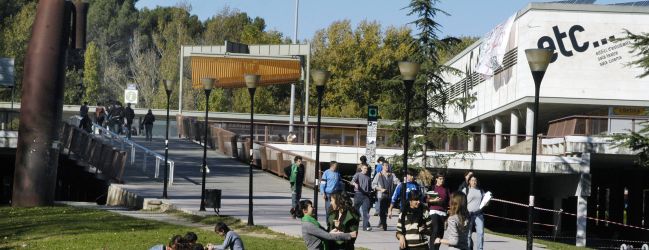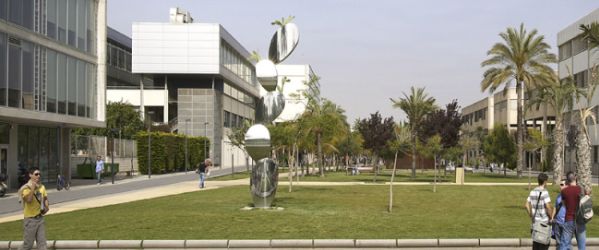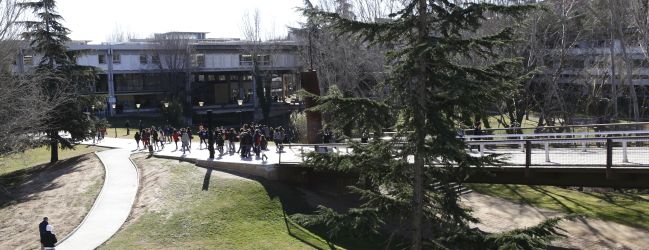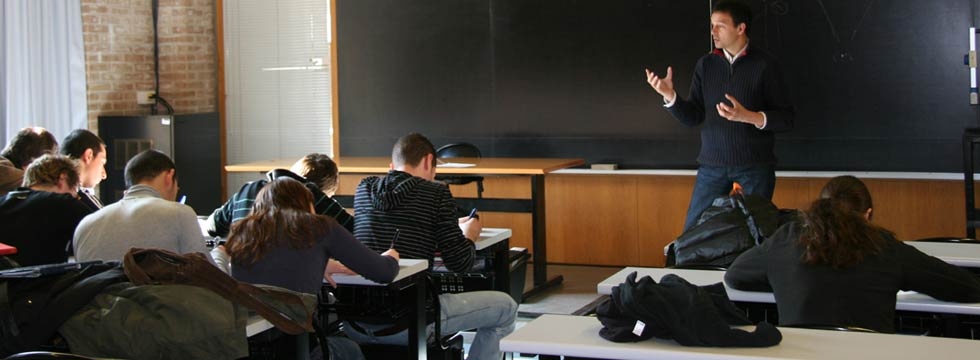International Campuses of Excellence (ICE) in the Mediterranean, in eastern Spain

International Campuses of Excellence (ICE) in the Mediterranean, in eastern Spain
Universitat Autònoma de Barcelona International Campus of Excellence

International Campuses of Excellence (ICE) in the Mediterranean, in eastern Spain
VLC International Campus of Excellence

International Campuses of Excellence (ICE) in the Mediterranean, in eastern Spain
Universitat Autònoma de Barcelona International Campus of Excellence
Catalonia (5 ICE with a global scope)
Barcelona Knowledge Campus (formed by Barcelona University and the Polytechnic University of Catalonia. Stamp awarded in the ICE-2009 process)
http://bkc.upc.ub.edu/
It is defined by three areas of specialisation: life sciences, social sciences and technology. However, it also covers other themed areas such as architecture, engineering, pure sciences and fine arts.
The Barcelona Knowledge Campus (BKC) is committed to sustainability and its role at the cutting edge of research. In fact the campus itself is home to two science parks, two technological innovation centres, and the Innova Programme, aimed at contributing to the enhancement of R+D.
This campus has extensive spaces for sport and culture, in addition to classrooms and laboratories adapted to the European Higher Education Area (EHEA), Masters' courses taught completely in English, and is a member of the leading international networks.
UAB CEI: Commitment to knowledge and innovation (formed by the Barcelona Autònoma University. Stamp awarded in the ICE-2009 process)
http://www.uab.cat/cei/
With 263 hectares, this campus is also committed to accessibility, respect for the environment and research in three emerging areas: nanoscience, biotechnology and biomedicine.
It has a broad international academic offer and is a byword for research. It has 57 main departments. The surrounding area is home to 28 centres and institutes, many of which work with major research institutions. This is supplemented by its activities in the five large hospitals in the area.
CAMPUS ENERGÍA UPC: Energy for Excellence (formed by BarcelonaTech Polytechnic University of Catalonia. Stamp awarded in the ICE-2010 process)
http://campusenergia.upc.edu/
Campus Energía is a strategic aggregation whose goal is to transform the energy sector.
Students opting for this campus when they come to study in Spain will find state-of the-art courses, international partnerships and mobility projects with other European centres of excellence.
In the area of research and knowledge transfer, it is worth highlighting the interesting work being carried out by the living research labs and the offer of technology courses (with a section dedicated to energy and the environment).
This campus also works in collaboration with some of the keynote institutions on the Spanish science and technology scene, and offers the following areas of specialisation: smart energy management systems, renewable energies, energy efficiency, and fusion and nuclear fission.
Campus UPF - Icària Internacional (formed by the Pompeu Fabra University. Stamp awarded in the ICE-2010 process)
http://www.upf.edu/icaria-cei/
The three areas covered by this university are social sciences, biomedical sciences and information and communication science and technology. This campus was created to develop a model based on quality teaching, proximity to the students, internationalisation and orientation towards research and innovation. It also seeks to foster postgraduate studies.
Another of its aims is to integrate the campus in its environment (proyecto 22@Barcelona) as a means of establishing the city of Barcelona as a knowledge capital.
Health Universitat de Barcelona Campus (HUBc) (formed by Barcelona University. Stamp awarded in the ICE-2010 process)
http://hubc.ub.edu/
Its aim is to interact with the main hospitals and research institutions in the area of healthcare. In fact, the objective of HUBc is to create high-quality environments in university life, in a context of sustainable economic and social development.
It is structured around three major axes (Zona Franca, Biopol de Hospitalet and the medical group Agrupación Sanitaria San Juan de Dios-Hospital Clínico), and has the latest technology to enable it to recruit the top students, researchers and companies.
Region of Valenciana (2 ICE with a global scope)
VLC/CAMPUS - Valencia, International Campus of Excellence (formed by Valencia University (UV) and the Valencia Polytechnic University (UPV). Stamp awarded in the ICE-2010 process)
http://www.vlc-campus.com/
This initiative is also promoted by the Higher Council for Scientific Research (CSIC) as a means of transforming the metropolitan area of Valencia into a knowledge hub through the specialisation of its scientific and technological output.
VLC/CAMPUS is formed by 32 teaching centres, 63 research institutes, 135 university departments, 46 libraries and learning resource centres, two science parks and the whole array of services and resources available from the three institutions.
CAMPUSHABITAT5U (formed by the Valencia Polytechnic University, Valencia University (Estudi General), Jaume I University in Castellón, Alicante University and the Miguel Hernández University in Elche. Stamp awarded in the ICE-2011 process)
http://www.campushabitat5u.com/
Its aim is to promote a process of smart, sustainable and integrated growth in the Region of Valencia, and it specialises in four areas of action: territorial planning and management, social space, building and home.
In addition to their joint collaboration, the universities in Campus Hábitat 5U seek to involve local companies, institutions and city councils in their common project. One of their main partners is the Network of Technology Institutes (REDIT), and companies and business clusters in the habitats and territories sector.






